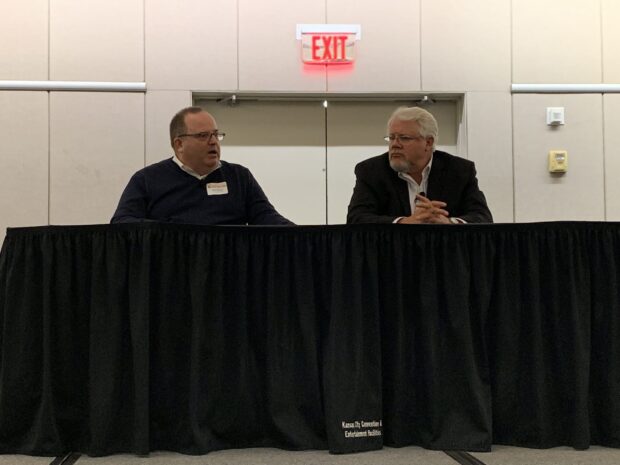HOME | ABOUT US | MEDIA KIT | CONTACT US | INQUIRE
HOME | ABOUT US | MEDIA KIT | CONTACT US | INQUIRE

It’s getting harder to find a business that doesn’t compete with Amazon, and that’s not good news for veterinarians.
The animal-health business, which was once squarely in the arena of vets’ recommendations and advice, is rapidly losing market share to the online-retailing giant, as well as Walmart, e-commerce pet-supplies merchant Chewy, and others, said speakers at the KC Animal Health Corridor Market Insight Seminar yesterday at the Kansas City Convention Center.
“Vets did not go to veterinarian school to become a shopkeeper, but Walmart very much wants to be a veterinarian-services provider,” said David Sprinkle, research director and publisher at Packaged Facts, a consumer-research firm based in Maryland. “The veterinarian voice continues to be drowned out.”
And apparently it’s been effective. Over the last year 67 percent of pet owners ordered either food or other pet products online. Meanwhile, companies are marketing pet food similar to human food, using terms like “organic,” “grain free.” Sprinkle said that 79 percent of consumers think that “natural” pet food is healthier than formulas that are processed, but most of them came to that conclusion themselves, independent of a vet’s advice. Meanwhile, consumers don’t know the difference between flea and tick treatments being offered by vets versus those being sold in retail outlets. Younger and urban consumers are also taking a more DIY approach to caring for their animals, which has also hurt vets.
The increased humanism of animals influences shopping with more anxiety medication being purchased for pets. (“I’m stressed out living in the city, so my pet must be.”) That’s why Sprinkle asked the vet community to consider renaming their facilities from hospitals to clinics, which has a much less ominous-sounding connotation.
Vets need to market more to the pet owner’s consumer experience because that’s what they’re used to in other channels of their life, said Chris Ragland, chief executive officer of Animalytix, also based in Maryland. He reported that the overall animal-health industry was valued at $33.5 billion last year, a 5.3 percent year over year increase.